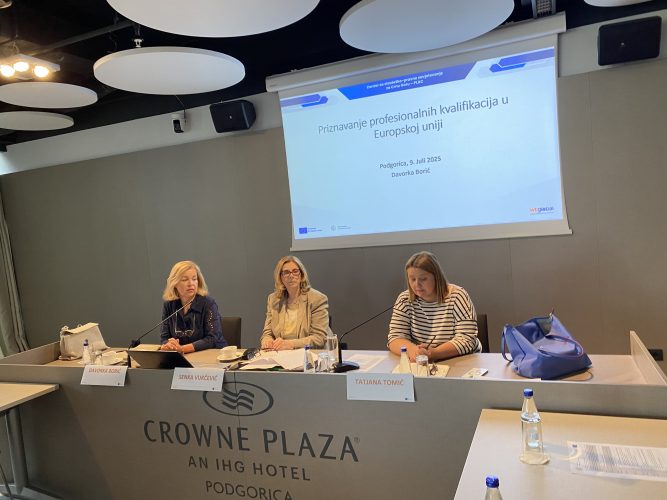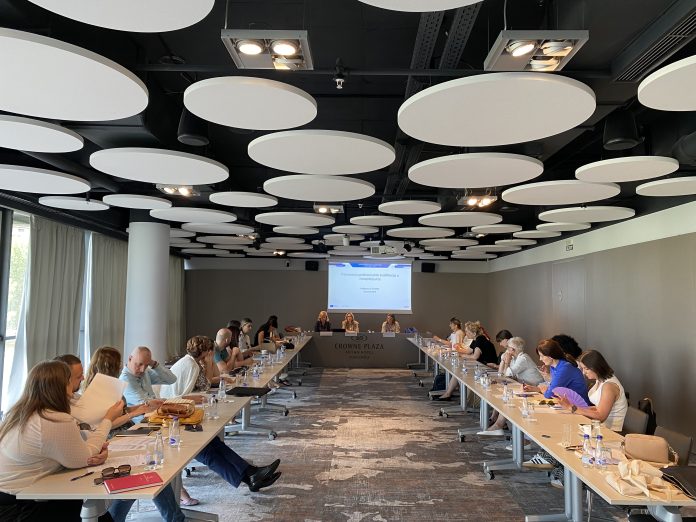Recognition of professional qualifications means that citizens of Montenegro can practice regulated professions—such as doctors, architects, pharmacists, or teachers—on the labor market of the European Union. To make this possible, it is necessary for national legislation to be fully aligned with EU rules and standards, officials emphasized today at a workshop dedicated to drafting national regulations governing professions, in accordance with Directive 2005/36/EC and Directive 2013/55/EU on the recognition of professional qualifications.
The workshop was organized by the Ministry of Labor, Employment and Social Dialogue and the Strategic Legal Advisory Center for Montenegro (PLAC) project, financed by the European Union. The event aimed to familiarize the competent authorities with the obligations arising from EU directives and the national Law on Recognition of Professional Qualifications, in order to initiate the process of aligning sectoral regulations and ensuring their practical application.
At the opening, Ms. Senka Vukčević from the Ministry of Labor, Employment and Social Dialogue highlighted the importance of a comprehensive and coordinated legislative reform.

“Recognition of qualifications is directly linked to our citizens’ ability to move and work freely in EU member states. Therefore, it is important that all relevant authorities participate in aligning regulations and standardizing rules, as only in this way can we provide citizens with legal certainty and access to the European labor market,” Vukčević stated.
Project expert Ms. Davorka Borić presented the key requirements of the EU directives and their relevance for Montenegro. Special focus was placed on the obligations of candidate countries regarding the definition of regulated professions and conditions for their practice, the need to clearly designate competent authorities for recognition in sectoral laws, the importance of transparent procedures and compensatory measures (e.g., supplementary exams, practical training), and the introduction of an institutional framework capable of ensuring effective implementation of the Law on Recognition of Professional Qualifications.
“Recognition of professional qualifications is not a bureaucratic process—it is a matter of freedom of movement, mutual trust among states, and quality assurance. For Montenegrin doctors, engineers, teachers, and other professionals to work seamlessly in EU member states, Montenegro must speak the same legislative language. Aligning regulations is the first step, but consistent implementation in practice is equally important,” Borić emphasized.
Through interactive discussions and experience sharing, the workshop contributed to a better understanding of the legal and institutional steps that bring Montenegro closer to EU standards and enable the practical application of the principle of free movement of professionals.
MINISTRY OF LABOR, EMPLOYMENT AND SOCIAL DIALOGUE
STRATEGIC LEGAL ADVISORY CENTER FOR MONTENEGRO (PLAC)


